Israel is the world’s leading producer of wool. In addition, it is one of the world’s leading sheep-producing countries, with an annual production of over 1.5 million lambs and 2.5 million breeding ewes. Israeli sheep are highly sought-after for their quality wool, and the industry employs many people.
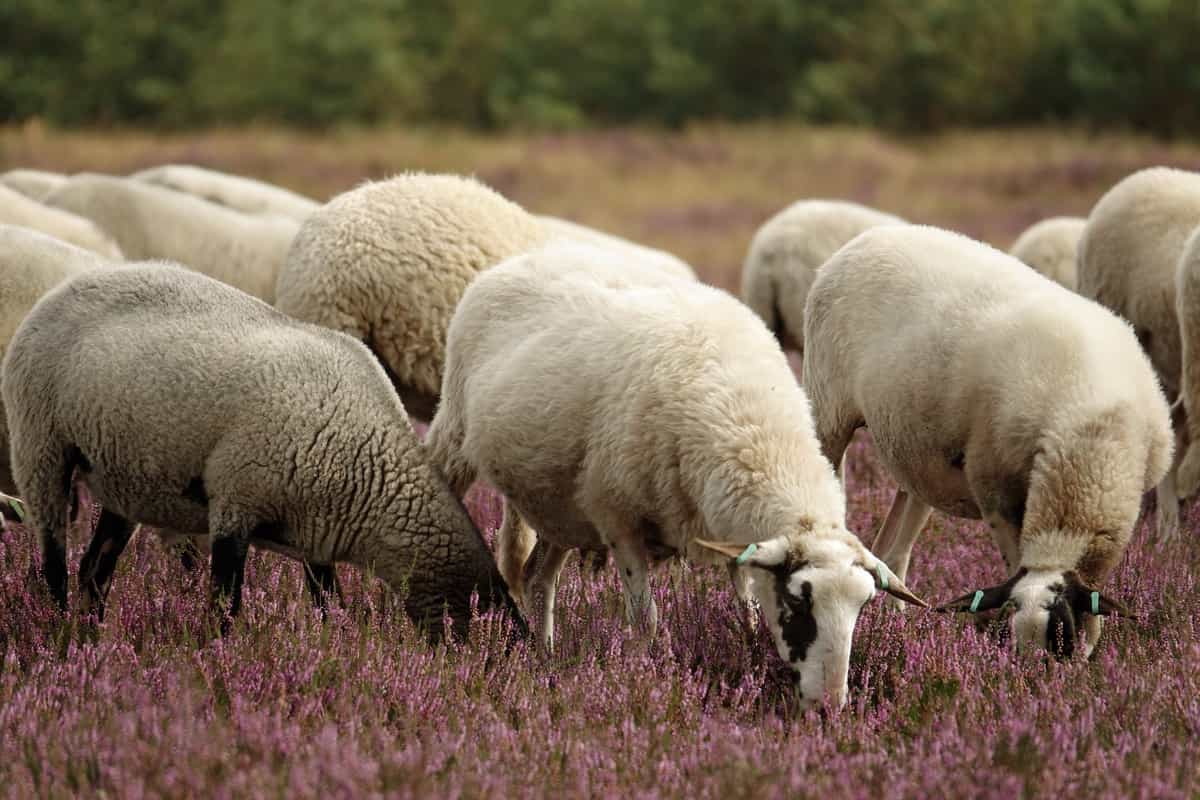
How to start sheep farming in Israel
Sheep farming importance in Israel
- Israel is one of the top sheep-farming countries in the world. The country has a long history of sheep farming, which is still a major industry. There are many reasons why Israel is such a great place to farm sheep.
- First of all, Israel has a lot of land. For example, Israel has more than twice as much land as Germany, the second-largest sheep-farming country in the world. This abundance of land allows farmers to keep many sheep without running out of space.
- Secondly, Israel has warm weather year-round. This means that farmers can raise sheep even in the coldest months.
- Last but not least, Israeli farmers are skilled at raising sheep. They have developed specific techniques that allow them to produce high-quality woolen products.
How does sheep farming in Israel benefit the economy?
Sheep farming in Israel benefits the economy in a few ways. Firstly, it creates jobs for farmers and other workers in related fields. Second, wool production is a significant contributor to Israel’s GDP. Finally, sheep farming supports rural development and contributes to the country’s environmental stewardship. Israel is home to more than 120,000 sheep farmers, who raise lambs for meat or fiber. The industry directly employs more than 17,000 people and provides livelihoods for an additional 40,000 workers in related industries.
In case you missed it: How to Start Greenhouse Farming in Israel: Business Plan, Key Rules, Cost, Profit, and Management
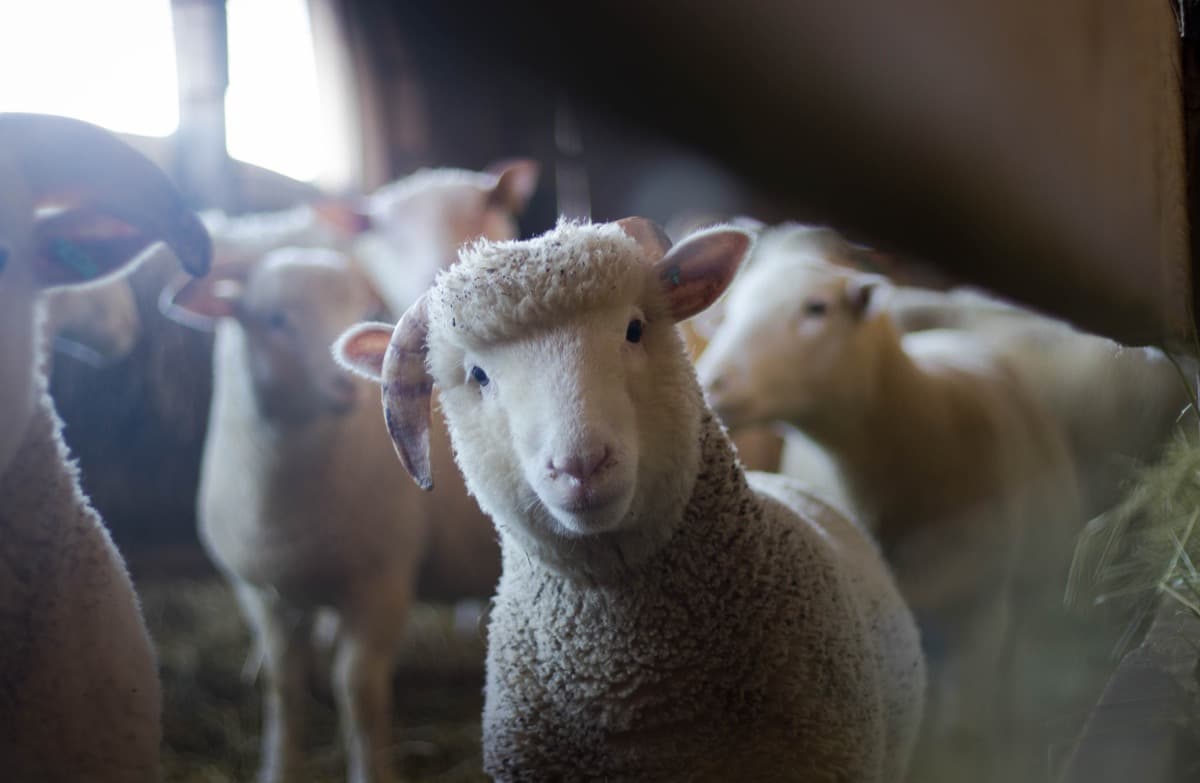
The proper fencing to keep sheep safe
In Israel, sheep farming is a common practice, and many different breeds of sheep can be raised on a farm. The main use for sheep is wool, which can be used to produce items like cloth and yarn. Shearing the sheep is a necessary part of the farming process, usually done once a year.
Is sheep farming profitable in Israel?
Sheep farming in Israel is a profitable venture. The country’s diverse climate allows for the cultivation of various crops, making it possible to produce meat, milk, wool, and other products from sheep. In addition to the benefits of sheep farming, the industry also supports many related jobs.
For example, shepherds and farmers operating sheep farms are responsible for caring for the animals and managing their grazing patterns. This necessitates using equipment such as fences, mowers, and hay wagons. In addition, buyers who purchase sheep from farmers need transportation to bring the livestock to market. Thus, the industry employs people in various occupations.
Zero grazing sheep farming in Israel
Israel has long been known for its agricultural production, and sheep farming is no exception. Israel produces over a third of the world’s sheep. Most of these sheep are raised on zero grazing farms, where the animals can graze freely on natural vegetation. The benefits of zero grazing are clear: the sheep are healthier and have more meat on their bones because they don’t have to concentrate on finding food. They also create less noise and waste than intensively-farmed sheep, which helps reduce environmental impact.
Diseases and parasites affecting sheep
Sheep farming in Israel is very important in the country’s agricultural sector. The sheep are central to Israeli agriculture, as they are used for wool and meat. Several diseases and parasites can affect sheep; however, most problems can be avoided by taking appropriate precautions. One common disease that affects sheep is foot-and-mouth disease (FMD). This virus attacks the eyes, respiratory tracts, and intestines of animals, leading to death in many cases.
To prevent FMD outbreaks, farmers must take proper precautions during the breeding season, when the virus is spread through saliva and feces. Protective clothing and boots are essential for farmers who work with FMD-infected animals. Sheep also suffer from other diseases, such as coccidiosis and listeriosis. Coccidiosis is a parasitic infection that affects the intestines of sheep.
In case you missed it: How to Start Fish farming in Israel: Business Plan, Key Rules, Cost, Profit, and Management
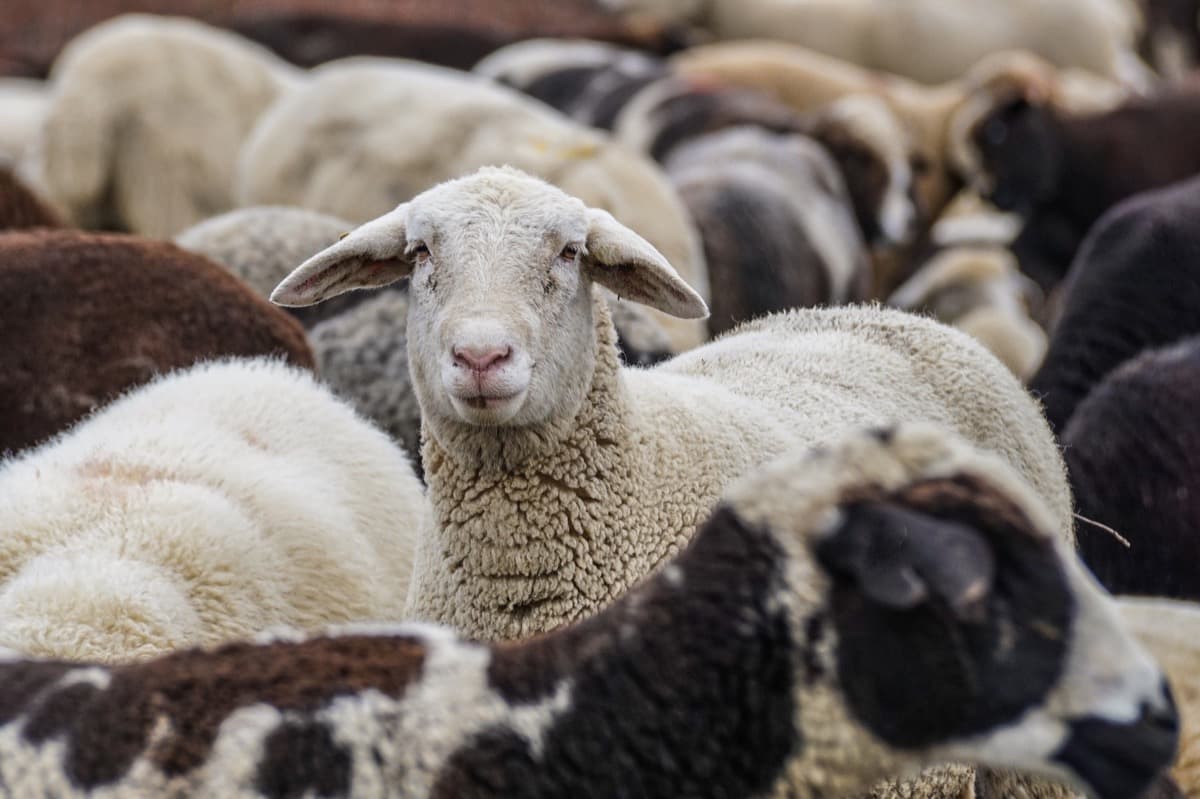
It can lead to lameness and death in young sheep if not treated promptly. Listeriosis is a bacterial infection that causes fever, muscle aches, loss of appetite, diarrhea, and death in high numbers among livestock populations. Farmers must take steps to prevent both infections by cleaning their equipment regularly and properly disinfecting it after each use.
Sheep breeds available in Israel
There are many breeds of sheep in Israel. The most common type of sheep is the Awassi, Nubian, and Assaf sheep, followed by the Saanen and Shorthorn. However, the dominant breeds are the Merino, the Shorthorn, and the Welsh Corgi. In recent years, Israeli farmers have been aggressively promoting a new type of sheep – the Nubian – which has exhibited high wool yields and resistance to pests and diseases.
Feeding practices in sheep
Feeding sheep is an important task in sheep farming. Sheep need to have hay, straw, and fresh water in their diets to stay healthy. Hay is the most important part of their diet because it helps them grow strong wool coats. Sheep farmers in Israel use a lot of different feeds to feed their sheep. They usually feed hay, straw, and pellets as their main feeds. Hay is an important part of a sheep’s diet because it helps them grow strong wool coats. Pellets are also a good source of nutrients for the sheep.
Tips for raising healthy sheep
- There are few places in the world where shepherding is as intimately connected to the land as it is in Israel. The country’s unique geography and climate have resulted in a centuries-old tradition of raising sheep on small, rural farms. And today, this activity is a vital part of the Israeli economy – accounting for more than a third of agricultural production.
- To keep their sheep healthy, farmers must pay close attention to their animals’ diet and surroundings. Shepherds must constantly monitor their flock for signs of illness or predators while ensuring they have enough feed and water. In addition, they must maintain clean pastures and eliminate any harmful plants or insects from the area.
- Keeping sheep healthy is a challenging task, but it’s one that Israeli farmers are well-equipped to handle. Thanks to their intimate connection to the land and years of experience, they know how to provide their sheep with the best possible environment while still ensuring their livelihoods.
Sheep farming types in Israel
- The most common type is semi-natural or intensive agriculture, where sheep are raised on small farms. This type of farming is generally done in areas with good climates and fertile soil.
- The second type of sheep farming is natural grazing, where the animals can roam freely on open fields. This type of farming is popular in areas with a desert climate.
- Finally, there is organized ranching, where large flocks of sheep are kept by farmers who provide them with feed, water, and shelter.
In case you missed it: How to Start Organic Farming in Israel: Key Rules, Business Plan, Certification, and Challenges
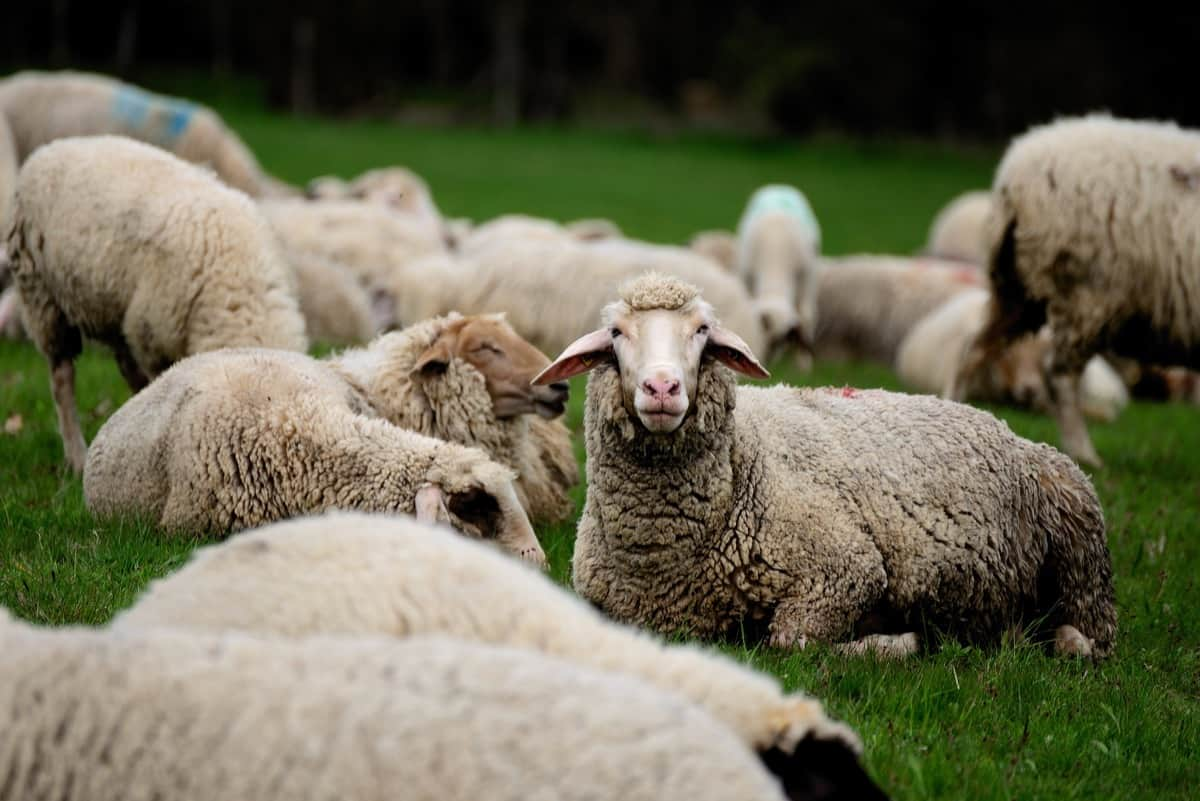
Commercial sheep farming in Israel
Sheep farming in Israel is very important, employing thousands of people. However, the sheep farming industry in Israel is divided into commercial and hobby. Commercial sheep farming involves raising sheep for their wool, meat, and milk products, while hobby sheep farming focuses on raising lamb exclusively.
Steps to start sheep farming business plan in Israel
- To start a sheep farm in Israel, you must obtain a permit from the Israeli Ministry of Agriculture. You will need to purchase land and build enclosures for your sheep.
- After your farm permit, you must purchase land and build a barn. You will also need to purchase breeds of sheep and other necessary equipment and supplies. Once you have the necessary supplies, it is time to start your farming business plan.
- To start sheep farming in Israel, you need to have a business plan outlining your goals and targets.
- Next, you will need to research the market for sheep farming in Israel and figure out what livestock you would like to raise.
- You will also need to determine the necessary resources to start your sheep farming business in Israel, such as land, fencing, and feed supplies.
- Once you have all your resources figured out, it is time to create a marketing plan that will help promote your sheep farming business in Israel.
- Lastly, ensure you are prepared for the challenges and potential obstacles of starting a sheep farming business in Israel.
Key rules to start sheep farming in Israel
- The climate is perfect for sheep farming as the country experiences warm summers and mild winters. In addition, farmlands in Israel are fertile, providing the necessary ingredients for producing healthy lambs.
- Make sure you have a well-established flock before attempting to raise more sheep. You will need to provide them with enough feed, water, proper shelter, and security.
- The farmland in Israel is well-irrigated, which helps to produce high yields of crops. In addition, the country imports very little feed for its sheep, meaning that the agricultural output of Israeli sheep farms is highly dependent on rainfall and other natural resources.
- You will need a permit from the Israeli government. Next, you will need to find land suitable for raising sheep. Finally, you will need to install proper fencing and irrigation systems.
Sheep farming loans in Israel
Sheep farming is a popular agricultural activity in Israel. The country has various climates ideal for raising sheep, and the cost of lamb is high compared to other meats. As a result, Israel has several sheep farming loans available to those interested in starting their farm. These loans can purchase land, equipment, and other necessary supplies.
In addition, interest rates on these loans are typically low, making them an affordable option for those looking to get into sheep farming. Many farmers in Israel use rotational grazing as their primary method of feeding their sheep. This system allows the sheep to graze multiple times each day, allowing them to eat a wide variety of plants and grasses.
In case you missed it: How to Start Goat Farming in Israel: Key Rules, Business Plan, Breeds, Cost, Profit, and Management
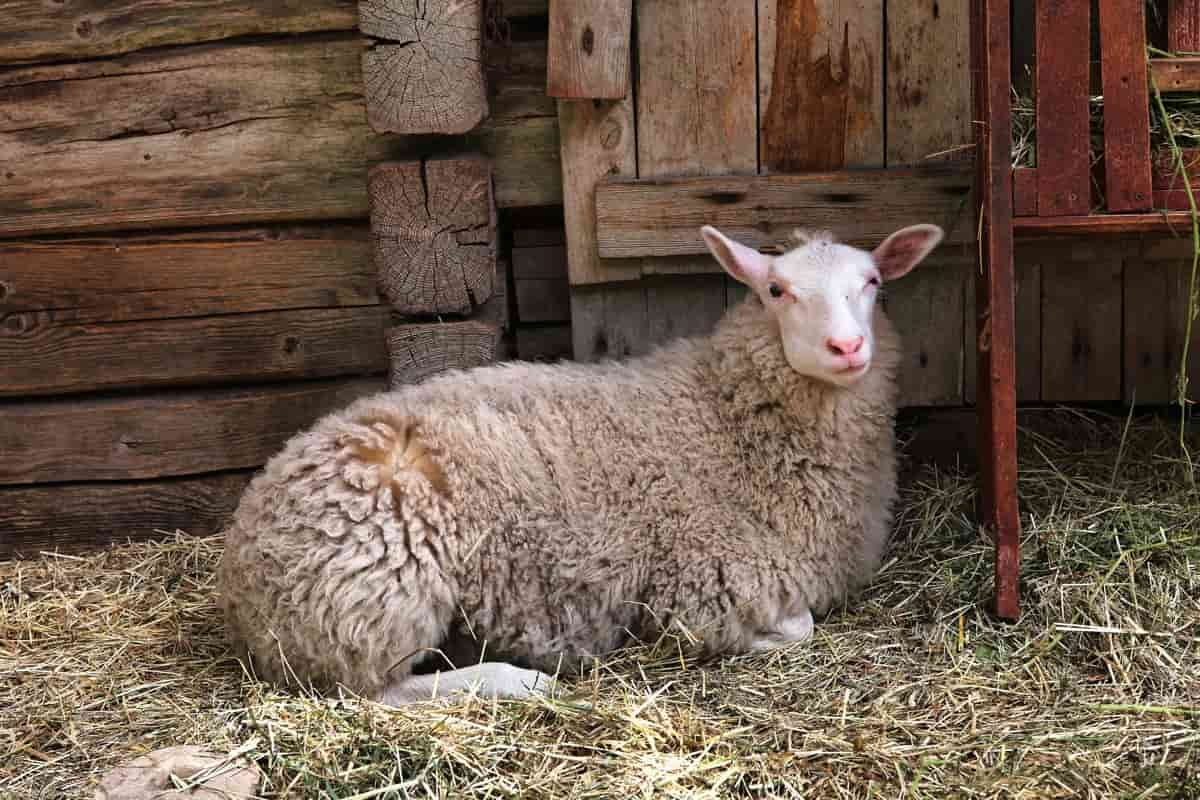
Sheep farming set up cost in Israel
According to the Israel Agriculture Ministry, it costs NIS 1,000-2,500 to set up a sheep farm in Israel. This includes purchasing land, building a fence and stock pens, and investing in feed and medications. Depending on the size of the flock, farmers may also need to purchase equipment such as shearing machines and barns.
Sheep farming challenges in Israel
There are several challenges to sheep farming in Israel, the most significant of which is the lack of suitable land. However, there are also several advantages to sheep farming in Israel, including its climate and fertile soil. The main challenges facing sheep farmers in Israel include a lack of land suitable for grazing, competition from other livestock producers (primarily cattle and goats), and pest/disease problems.
Specific diseases that can be problematic for Israeli sheep include foot-and-mouth disease (FMD), listeriosis, and scrapie. In addition, Israeli sheep are susceptible to cold weather conditions due to their woolly coats; this can lead to pneumonia and even death. Despite these challenges, Israeli sheep farmers continue to strive for success by cultivating innovative farming techniques and utilizing modern technology.
For example, they use satellite imagery to monitor pasture conditions, GPS devices to track flock movements, and computers to keep records of lamb births and deaths. Sheep farming in Israel is an important source of income for many farmers. However, it can be challenging due to the country’s harsh conditions. Several organizations dedicated to helping farmers with their sheep farming are available to help them with everything from advice on caring for their flock to financial assistance when they face difficulties.
Sheep farming states in Israel
Sheep farming in Israel is a popular activity for beginners. The climate is perfect for sheep farming, with moderate temperatures and ample rainfall. There are many places to farm sheep in Israel, including the Judean Hills, the Carmel Mountains, and Galilee.
In case you missed it: How to Start Dairy Farming in Israel: Business Plan, Key Rules, Breeds, Cost, Profit and Management
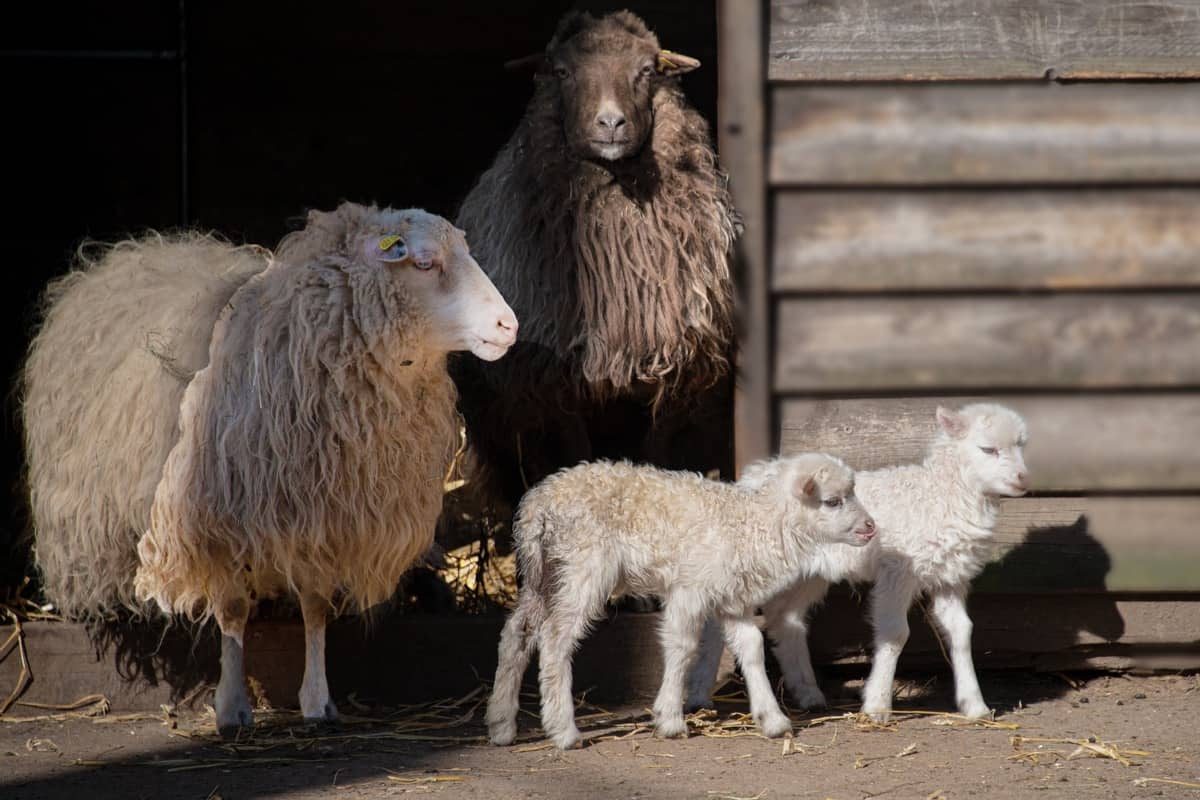
Conclusion
Sheep farming in Israel is a centuries-old tradition that continues to play an important role in the agricultural economy. The country has a rich history of sheep farming and remains one of the main providers of wool products worldwide. As a result, sheep farming is a major industry in Israel. The country has a long history of raising sheep, and the industry is still very important today.
- Types of Pesticides Used in Agriculture: A Beginner’s Guide
- Economical Aquaculture: A Guide to Low-Budget Fish Farming
- 15 Common Planting Errors That Can Doom Your Fruit Trees
- How to Make Houseplants Bushy: Effective Tips and Ideas
- Innovative Strategies for Boosting Coconut Pollination and Yield
- Pollination Strategies for Maximum Pumpkin Yield
- The Complete Guide to Chicken Fattening: Strategies for Maximum Growth
- Natural Solutions for Tulip Problems: 100% Effective Remedies for Leaf and Bulb-Related Issues
- Revolutionizing Citrus Preservation: Towards a Healthier, Greener Future
- Natural Solutions for Peony Leaf and Flower Problems: 100% Effective Remedies
- Maximizing Profits with Avocado Contract Farming in India: A Comprehensive Guide
- Natural Solutions for Hydrangea Problems: 100% Effective Remedies for Leaf and Flowers
- The Ultimate Guide to Choosing the Perfect Foliage Friend: Bringing Life Indoors
- From Sunlight to Sustainability: 15 Ways to Use Solar Technology in Agriculture
- The Ultimate Guide to Dong Tao Chicken: Exploring from History to Raising
- The Eco-Friendly Makeover: How to Convert Your Unused Swimming Pool into a Fish Pond
- Mastering the Art of Delaware Chicken Farming: Essentials for Healthy Backyard Flocks
- 20 Best Homemade Fertilizers for Money Plant: DIY Recipes and Application Methods
- How to Craft a Comprehensive Free-Range Chicken Farming Business Plan
- Brighten Your Flock: Raising Easter Egger Chickens for Beauty and Bounty
- How to Optimize Your Poultry Egg Farm Business Plan with These Strategies
- Subsidy for Spirulina Cultivation: How Indian Government Schemes Encouraging Spirulina Farmers
- Ultimate Guide to Raising Dominique Chickens: Breeding, Feeding, Egg-Production, and Care
- Mastering the Art of Raising Jersey Giant Chickens: Care, Feeding, and More
- Ultimate Guide to Raising Legbar Chickens: Breeding, Farming Practices, Diet, Egg-Production
- How to Raise Welsummer Chickens: A Comprehensive Guide for Beginners
- How to Protect Indoor Plants in Winter: A Comprehensive Guide
- Ultimate Guide to Grow Bag Gardening: Tips, Tricks, and Planting Ideas for Urban Gardeners
- Guide to Lotus Cultivation: How to Propagate, Plant, Grow, Care, Cost, and Profit
- Agriculture Drone Subsidy Scheme: Government Kisan Subsidy, License, and How to Apply Online
- Ultimate Guide to Raising Araucana Chickens: Breed Profile, Farming Economics, Diet, and Care
- Bringing Hydroponics to Classroom: Importance, Benefits of Learning for School Students
- Ultimate Guide to Raising Polish Chickens: Breed Profile, Farming Economics, Diet, and Care
- Ultimate Guide to Raising Australorp Chickens: Profile, Farming Economics, Egg Production, Diet, and Care
- Silkie Chicken Farming: Raising Practices, Varieties, Egg Production, Diet, and Care
- Sussex Chicken Farming: Raising Practices, Varieties, Egg Production, Diet and Care